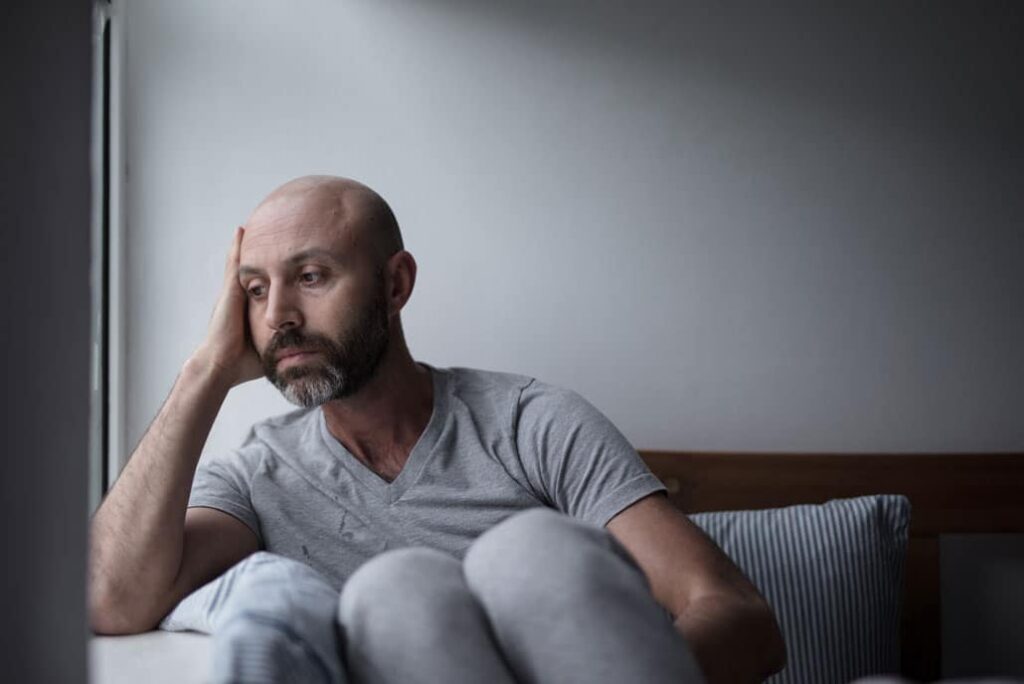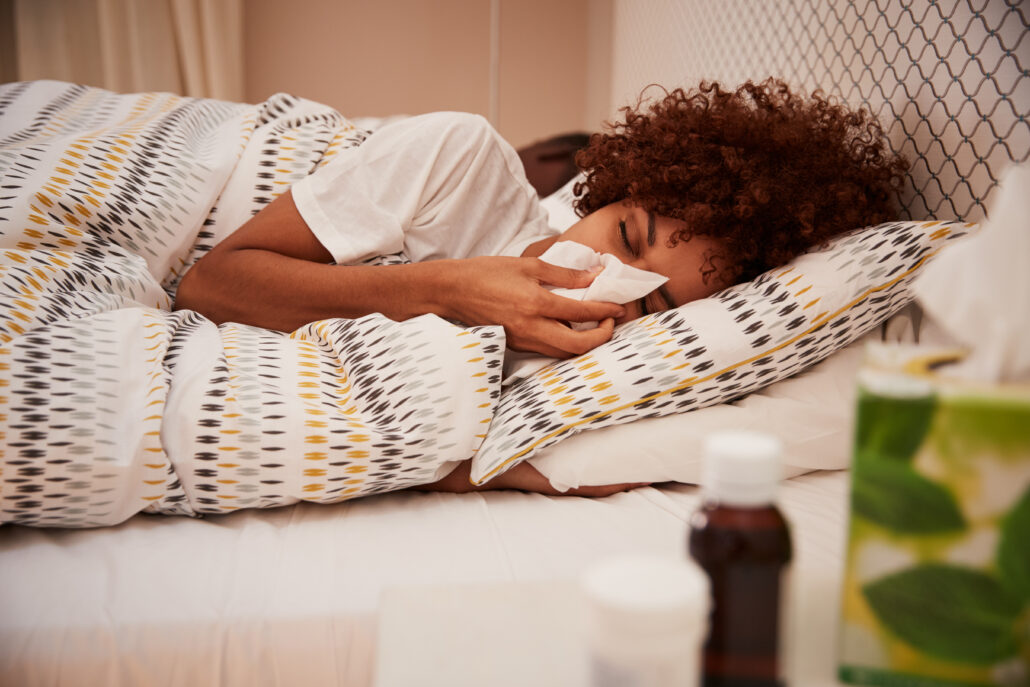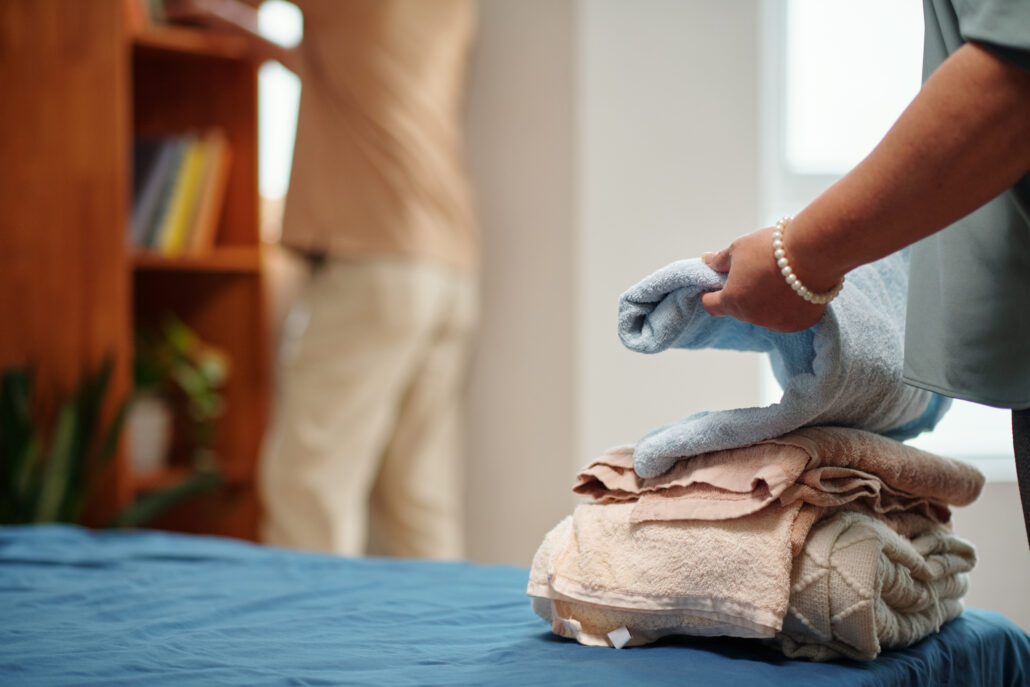
The relationship between sleep and depression is typical of many personal relationships: it’s complicated. Poor mood can interfere with sleep quality, and in turn, a rough night can make it more difficult to cope with the demands of the day. Which condition predates the other is unclear, and potentially changeable. The bidirectional nature of sleep and mood makes it difficult to tease out cause and effect, so targeting both areas is key to maximizing improvement.
Sleep and Emotional Regulation
Getting proper rest helps us regulate our emotions. Poor sleep leads to a shorter emotional fuse and more intense reactions to negative situations. We default to automatic behaviors, those that require less cognitive reasoning, which also tend to be more selfish and biased. Sleep negatively impacts attention and concentration, so we are more impulsive and less likely to pick up on social cues when underslept. We have a harder time accurately reading faces, experience more conflict and have less empathy for those around us. When we do not get adequate sleep, our emotional intelligence takes a deep dive and impairs our ability to get along well with others.
Sleep, Loneliness and Social Isolation
Loneliness and social isolation increase mortality, and as such are important markers of health. A person who does not sleep well is less likely to engage with others. There is a natural reflex to withdraw, and that distance then makes the person less attractive to others – so that often others fail to reach out to them. Loneliness creates stress and anxiety that contribute to further disruptions in sleep. This sets up a cycle that reinforces itself. In the 2019 State of America’s Sleep survey, poor sleepers were 1.77 times as likely to have difficulty in social situations as those who were rated excellent sleepers.
Talking to Your Healthcare Team about Your Mood
The CDC estimates depression may affect up to 16 million adults in the United States each year, and 1 out of every 6 people will experience symptoms of depression over the course of their lifetime. A good indicator that it’s time to talk about your mood with your healthcare team is if you have been feeling down, blue or hopeless for longer than two weeks and have lost interest in activities that you used to enjoy. Your clinician will take a thorough history of your mood disturbance, including how it has impacted your energy, sleep, appetite, feelings of worth, concentration and activity level. If you have thoughts of hurting yourself or others, please seek help immediately.
Talking to Your Healthcare Team about Your Sleep
Troubled sleep (both not enough or too much) is a sign of depression. If you are dissatisfied with your sleep, bring it up with your provider. Keep a sleep diary leading up to your visit so you have some data to share. Sleep disorders put you at greater risk for mood alterations and can have a major impact on your well-being. Find a sleep specialist who can help evaluate, diagnose and manage these conditions.
- Obstructive sleep apnea (OSA) is a condition where a blocked airway causes you to have trouble breathing. Those with OSA are five times more likely to develop depression. Common symptoms of sleep apnea are snoring, waking gasping or choking, dry mouth, daytime sleepiness, changes in mood or cognition, morning headaches, and restless sleep or insomnia.
- Narcolepsy is a chronic neurological condition characterized by sleep-wake instability and excessive daytime sleepiness. Persons with narcolepsy are at greater risk for mood disruptions.
- Restless leg syndrome fragments and disrupts sleep, and depression rates increase with severity.
- Insomnia can increase chances of developing depression tenfold. Often patients experiencing difficulty falling asleep or staying asleep seek treatment with prescription medications, alcohol or some other “quick fix.” There is no medication that produces healthy sleep. “Sleeping pills” have serious side effects, particularly in regards to cognition and mental health. Cognitive behavioral therapy (CBT) can help with depression, and a specialized version of CBT for insomnia is the treatment of choice for ongoing insomnia concerns.
Double Whammy: Knockout Punches for Both Depression and Sleep Problems
Treatments for depression are more successful when sleep quality and duration are sound. Seek professional help for both issues, but to boost your chances of success, work on these four habits that have been shown to improve both sleep and mood:
- Exercise regularly
- Get lots of outdoor light, particularly in the morning
- Keep to a routine
- Practice meditation
Poor sleep negatively impacts relationships, social life and connectedness, and often coexists with symptoms of depression. Sleep and mood are reciprocal and should be treated together for the best outcomes.
Depression and sleep are more connected than we think, but they don’t make good bedfellows. Learn more about their relationship from @BetterSleepOrg.
About Ellen Wermter
Ellen Wermter is a board-certified family nurse practitioner through the American Nurses Credentialing Center and a member of Sigma Theta Tau National Honor Society. She earned her Bachelor of Science in Nursing at the University of Virginia and her Master of Science at Virginia Commonwealth University and is a member of the Virginia Council of Nurse Practitioners (VCNP). Ellen is a dedicated sleep professional certified in cognitive behavioral therapy for insomnia who actively treats patients full time. In addition to her clinical work, she is a regular contributor to media about the science of sleep and healthy rest. Her expertise has been featured in publications such as Reader’s Digest, Elite Daily, Offspring and Women’s Running.
Sources:
- https://www.sleepfoundation.org/articles/depression-and-sleep
- https://www.cdc.gov/tobacco/campaign/tips/diseases/depression-anxiety.html
This blog provides general information about sleep and sleep products. The words and other content provided in this blog, and in any linked materials, are not intended to replace a one-on-one relationship with a qualified heath care professional. This blog should not be construed as medical advice or used to diagnose, treat, prevent or cure any disease or condition. If the reader or any other person has a medical concern, he or she should consult with an appropriately-licensed physician or other health care professional. This blog is not a substitute for professional medical advice, diagnosis or treatment, and should not be relied upon to make decisions about your health or the health of others. Never disregard professional medical advice or delay in seeking it because of something you have read on this blog or elsewhere on bettersleep.org. If you think you may have a medical emergency, immediately call your doctor or dial 911



